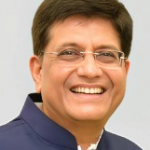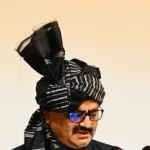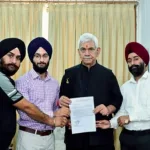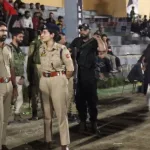Despite the fact that the Department of Education of Jammu and Kashmir appreciably has come up with several excellent steps to improve the academics at the elementary schools, the noblest goal in quality education supposedly remains awaited. The goal shall not remain unachieved. Nor shall it be seen as something impractical.
Certain actionable steps at the policy and administrative level are imperative to successfully turn elementary education, the foundation for effective learning, into a productive, problem-free and pleasant part of our social ethos.
Teachers are provided trainings — more or less around the year, remedial classes for slow learning students are at times undertaken and teacher- student ratio is time and again rationalized. Notably, the attendance of the teaching officials has been improved significantly. However, quality education achievement ostensibly is still a far cry.
Achieving that major objective at government schools does remain a hot topic of discussion- both in government and public circles. It is agreed by teachers, administrators and educationists that the academics, in government schools, mostly remain below par and that some correction measures are urgently needed to right the wrong. And to up the standard of the elementary schools to advantage for general public.
To correct the fault lines, several theories, viewpoints, tools and techniques have been introduced into the teaching field through various training programmes like SSA, RMSA and through NGO endeavors such as PRATHAM but the desired outcome stand elusive. That is ascribed mainly to the programmes/ trainings not in line with the needs and requirements at the schools.
Granted that the trainings are vital: they update teachers’ technical skills, expose them to newer and modern techniques and tools of teaching and infuse new life into our teaching-learning atmosphere, winning a soft spot for it among students. However, the argument that such trainings will single-handedly improve our academic standards and enable us to excel , leaves a lot to be desired because the newer techniques are not result- oriented and lack practical application .
It is noteworthy that no trainings and no newer techniques are either provided or used at the private schools. Still, their performance is viewed in more favorable light than government schools. Why?
Because the teaching- learning mechanism of private schools involves six strong unwritten principles- pleasure, participation, planning, provision, pressure and personnel. However, government schools too can improve their academic standards and qualitatively change the pattern of academics if they apply these six innovative and effective principles in their teaching- learning mechanism. The principles are given here under.
Pleasure
Students at the primary level should feel at home at government schools. They should be made to learn and play at the same time. For example, teaching through activities which are child centered and which let children express themselves freely and fearlessly. Errors should be corrected.
Verbal or physical punishment should be avoided. Trainings under “PRATHAM” focus on teaching basics to students, of the primary standard, through enjoyable activities in an atmosphere of friendship, affection and belongingness. Such learning will build a strong foundation of a child’s academic side. Moreover, such learning will promote the child’s all round development – physical, mental, emotional, intellectual and social. As a result, the roll of students can increase as well.
Participation
All the stakeholders of schools should participate in improving the performance of government schools. Students, teachers, parents, administrators – all must contribute to the improvement in the academic standards of the government schools. Yes, teachers have to lead from the front. But if students, parents and administrators just keep on criticizing and targeting teachers for bad performance of the schools, then the situation can never improve.
Good parenting demands that parents remain in regular touch with schools regarding the academic progress of their children. Administrators should ensure that teachers do not suffer from delayed salaries, unnecessary transfers and so on. In addition, the administrative hands should ensure good infrastructure, teaching- learning materials, comfortable and healthy environment for the teaching- learning process.
Planning
A good planning is a major need at government schools. Availability of books, syllabi copies, 2 teachers per class , 20 students per class – should be ensured before an academic session begins. All kinds of trainings need to be imparted after going into the field, diagnosing accurately the faults and accordingly tools/ modules should be prepared to correct the faults.
Further, trainings should be provided in a classroom like situation with real students participating in demonstration classes given by a trainer. Moreover, salaries of teachers must be raised and released at the end of a month. A must-have part of it is a teacher’s stable financial situation; so is her/his mental health.
Provision
Government schools are in dire need of pre-primary classes- nursery and kindergarten classes. In these classes, a beginner student goes through a vigorous course of writing and reading skills. Thus the beginner learns how to read and write basics like the alphabet and numbers. Moreover, these classes gift the kids with proper mental and emotional age which is necessary for learning words, sentences and paragraphs from the first primary standard.
The good thing is that pre-primary classes have excellently proven their merit and utility in yielding best results at private/ public schools. That is why; every private/ public school keeps a provision for pre- primary classes. Therefore, a provision for pre-primary classes must be kept at government schools as well so that a strong foundation is laid for the students admitted there.
Pressure
There must be pressure on government teachers for competiting among themselves for better performance to earn incentives, rewards and the reputation of being an excellent teacher. Competition improves performances. Unfortunately, the lack of the legacy of best teachers in the department kills the spirit for competition among teachers.
Consequently, teaching remains a low profile job and that impacts the academics badly. Moreover, there is no pressure for performing better. You perform better or bad. Your rank, job and place of posting are secure in all circumstances.
Personnel
Posting of teachers should be in view of a school’s requirements. Not the enrollment of school but the number of classes and subjects taught there must inform the posting. A single student in a particular standard is itself a class and good schooling demands that the student’s every aspect like academic achievement, development, curricular activities gets due attention at the school.
Adequate number of teachers can allow them to attend three/ four classes daily. And will enable them to make lesson plans/ diaries. Inadequate staff badly hits the academic progress at the elementary stage. The secondary schools are rich in the number of educators; the services of most of them can be utilized at the elementary schools without affecting the smooth functioning at the secondary level.
All these six P’s if applied together at government schools, can not only increase the enrolment there but also can improve the academic performance there. And thus prevent the collapse of the academics of these schools, the elementary schools.
(The Author is RK Columnist and teacher by profession. Feedback: [email protected])








